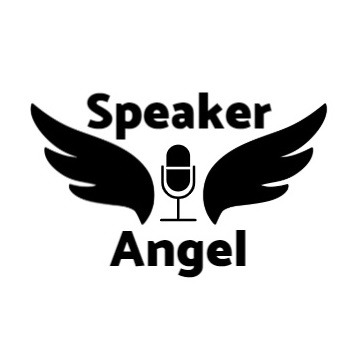As TEDx organizers, we get this question all the time.
Long story short, TED was not created by Ted Turner or Ted Danson. There is no Teddy Bear.
“There is no one named Ted.”
TED is an acronym created in 1984 by Richard Saul Wurman who recognized the collsion of three powerful fields fields: technology, entertainment and design.
The first TED, which he co-founded with Harry Marks, included a demo of the compact disc, the e-book and cutting-edge 3D graphics from Lucasfilm.
Despite an event with fantastic speakers, the first TED conference lost money. Wurman and Marks were so scarred by the debut, it took six years before they would try again.
This time, now 1990, the believed it was time to retry. The TED Conference became an annual event in Monterey, California, attracting an audience of multidisciplinary thought leaders who agreed on one thing – the power of ideas worth spreading.
One thing TED didn’t have figured out at the time was how to share their ideas at scale.
Ironic at the time, as the event was private and invitation-only. It is not now, you just have to come up with the $10,000 in ticket cost to attend. This restrictive price, among other reasons, is part of the reason why TEDx was born later in 2009.
See more about what TEDx is in our blog post here.
Since 1990, conference topics and speakers have expanded to include everything, and is no longer married to just technology entertainment and design. There are scientists, philosophers, musicians, business and religious leaders, philanthropists and many others. For most attendees, TED was their intellectual and emotional highlight of the year.
TED continued until throughout the 90s as a private event, selling tickets, sharing ideas, and so on.
Everything changed at the turn of the millenium. Chris Anderson, a technology media mogul from the UK, met with Wurman in 2000 to discuss the conference’s future. A deal was struck, and in 2001, Anderson’s nonprofit Sapling Foundation acquired TED, and Anderson became its Curator.
In taking the conference nonprofit, Anderson stood by the principles that made TED great: the inspired format, the breadth of content, the commitment to seek out the most interesting people on Earth and let them communicate their passion.
It soon became clear that the ideas and inspiration generated at TED should have an impact well outside the city limits of Monterey.
Accordingly, the years 2001–2006 saw three major additions to the TED family:
- A sister conference, TEDGlobal, held in locations around the world.
- The TED Prize, which grants its winners one wish to change the world.
- An audio and video podcast series, TED Talks, in which the best TED content is released free online.
The first six TED Talks were posted online on June 27, 2006. By September, they had reached more than one million views. TED Talks proved so popular that in 2007, TED’s website was relaunched around them, giving a global audience free access to some of the world’s greatest thinkers, leaders and teachers. You can watch the first six TED Talks ever here.
In 2008, in part thanks to new awareness created by TED Talks, the organization launched TEDActive, a simulcast version of the springtime TED Conference, allowing more people to attend at a lower price. By 2009, the number of TED Talk views had grown to 100 million views.
In that same year, the TED Fellows program was launched to bring up-and-coming innovators from around the globe to the conference for free.
The same year saw the creation of TEDx, a radical opening up of the TED format to local, independently organized events. Around the same time, we embarked on the TED Translator program, creating the infrastructure for TED Talks to be translated into 100+ languages.
In March 2012, TED-Ed was launched, creating short video lessons aimed at educators, and April 2012 saw the debut of TED Radio Hour, a partnership that brings ideas and stories from TED Talks to public radio listeners. All of these projects aim to create ever greater access to ideas, for free.
In the fall of 2012, TED Talks celebrated its one billionth video view. As TED Talks continue to be watched around the world, with an average of 17 new page views a second, TED conferences and events continue to inspire, motivate and thrill attendees. In 2014, the annual TED Conference celebrated its 30th anniversary in Vancouver, Canada.
The theme of this milestone conference: “The Next Chapter,” both a reflection on developments of the past 30 years as well as a look at what’s ahead.


Recent Comments